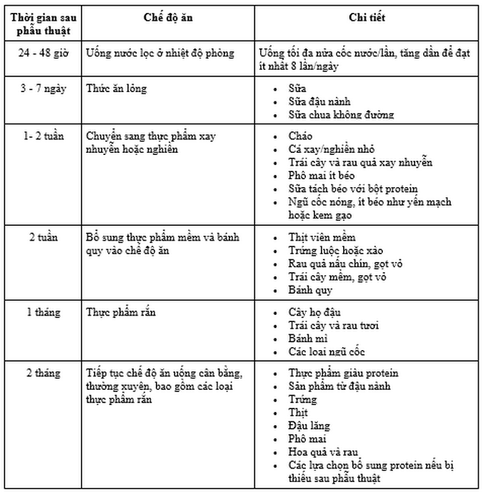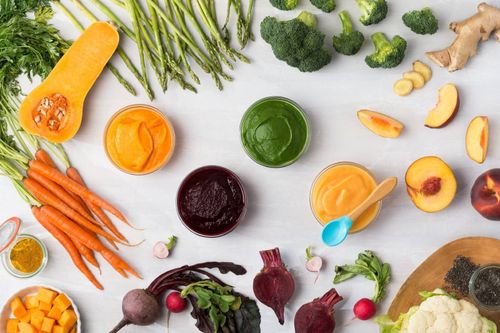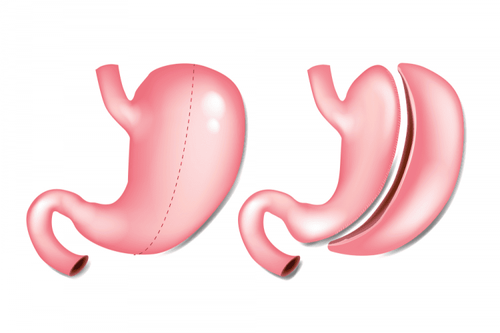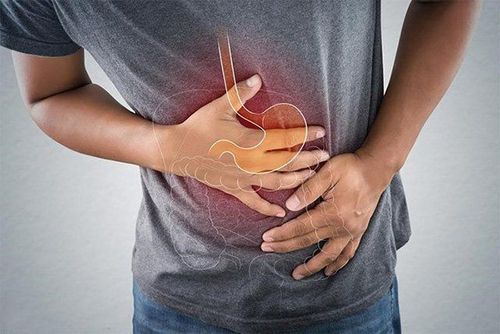This is an automatically translated article.
Adhering to post-operative nutrition helps patients minimize the risk of complications and promote recovery. Eating liquids for the first week after surgery is the bare minimum.
1. What should eat after surgery?
Patients need to follow a diet from liquid eating after surgery to eating solid food from time to time. Your post-surgery diet will vary from person to person, depending on your food tolerance, type of surgery, and speed of recovery. The following table is a general recommendation on nutrition for patients after surgery:

Chế độ ăn lỏng sau phẫu thuật
According to the instructions on diet and exercise after gastric bypass surgery, the patient should be provided with foods rich in protein. If reduced, it will lead to nutritional deficiencies in the months following surgery.
Patients should also avoid consuming carbs from processed foods such as sugar, confectionery. Instead, from about 1 month after surgery, focus should be on high-fiber carb foods. A high-fiber diet may aid in weight loss after surgery in overweight people.
2. What should not eat after surgery?
Eating foods that are not suitable for a medical condition can cause health problems, especially in gastric bypass surgery patients. Therefore, the patient should try to abstain from these foods until fully recovered.
After surgery should abstain from eating the following foods:
Hard and dry foods because patients often have difficulty swallowing after surgery Foods and drinks high in calories such as ice cream, cakes, chocolate and milk Carbonated drinks and sweets like soda Foods with a high glycemic index foods like bread, rice and potatoes, which can raise blood sugar quickly Chewing gum and foods that cause bloating

Người bệnh sau phẫu thuật không nên dùng đồ uống có ga
3. Change in eating habits after surgery
After surgery, the patient not only needs to change the type of food but also the eating method. Changing new eating habits helps reduce the risk of complications after surgery and faster recovery. Accordingly, the patient needs to:
Eat small meals from 4-6 meals a day instead of 3 large meals Chew thoroughly and slowly Stop eating when you feel full Choose a balanced meal with high protein content Avoid eating when you feel full. feeling stressed or bored, as this can reduce the effectiveness of your eating schedule Drink at least 1.5 liters of water a day Avoid drinking water while eating as this can lead to vomiting Stick to your diet This is a lifelong condition if the surgical site affects the ability to absorb nutrients. After surgery, patients need to adhere to a reasonable diet to ensure their health as well as the body's ability to recover. Patients should maintain the diet as recommended by the doctor or nutritionist.
If you have a need for consultation and examination at the Hospitals of the National Health System, please book an appointment on the website for service.
References: medicalnewstoday.com, healthline.com
Please dial HOTLINE for more information or register for an appointment HERE. Download MyVinmec app to make appointments faster and to manage your bookings easily.













